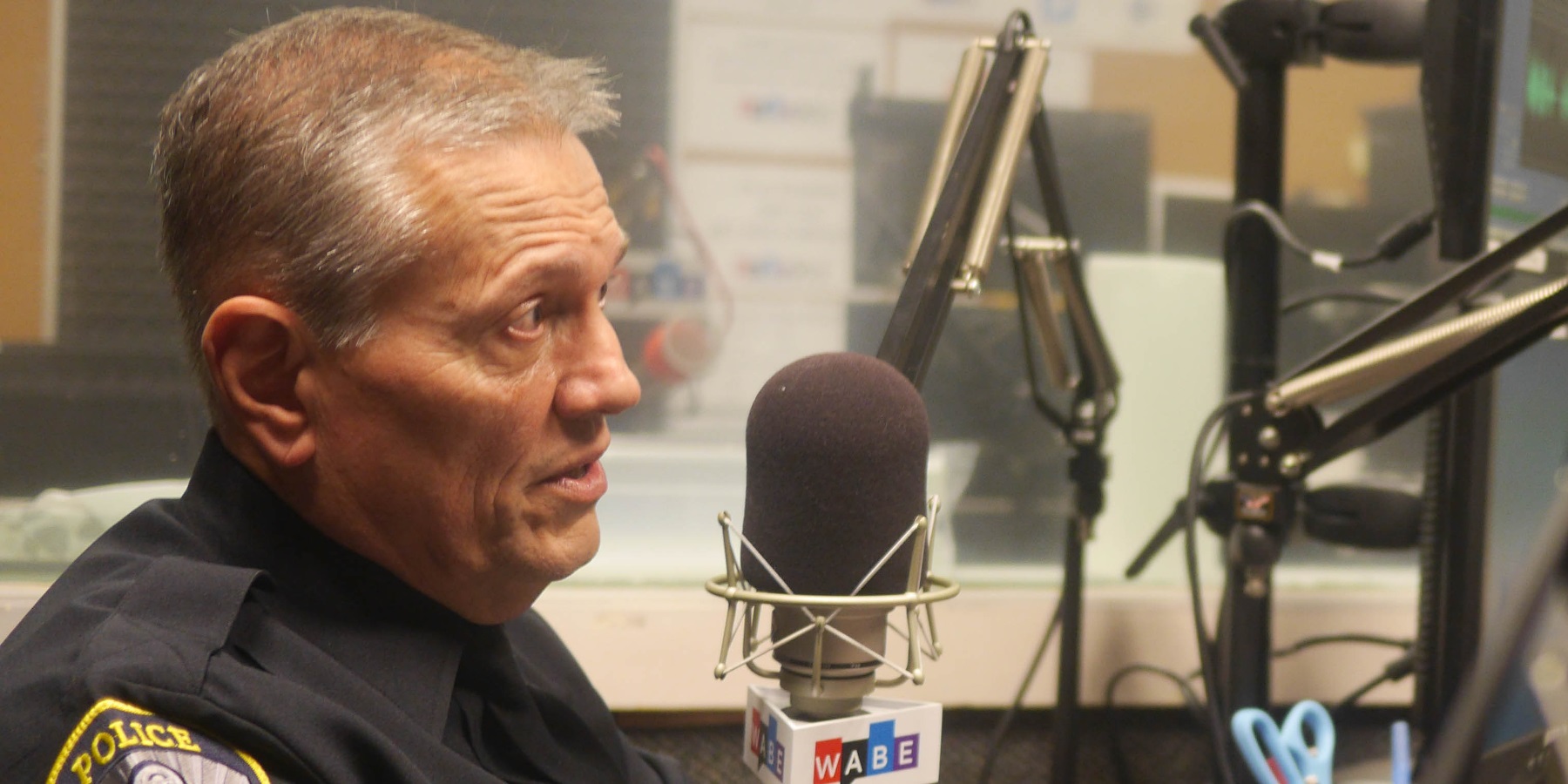LaGrange Police Chief Lou Dekmar On Building Community Trust

LaGrange Police Chief Lou Dekmar, who also serves as the president of the International Association of Chiefs of Police, said law enforcement officers have “to do a better job of building trust and transparency.”
Al Such / WABE
This past January, Lou Dekmar, the white police chief of LaGrange, Georgia, went before a predominantly African-American congregation and publicly apologized for the 1940 murder of a 16-year old African-American youth, Austin Callaway.
A white mob killed him after abducting him at gunpoint from the local jail. He was found hours later shot five times. Nobody was ever arrested.
It’s been 10 months since the apology, and during that time, Dekmar has been installed as the new president of the International Association of Chiefs of Police.
He joined host Denis O’Hayer on “Morning Edition” to talk about what’s changed in LaGrange since the apology and how law enforcement officers work to build trust in the communities they serve.
On what’s happened in the months since the apology
There’s been several initiatives with the Police Department and in the community to address issues in the criminal justice system. The Legislature in Georgia passed several years ago a record restriction statute that allows individuals that are arrested but not convicted to restrict access of that criminal history to potential employers. Because of the cumbersome nature and the fees oftentimes associated with that, few took the opportunity to exercise that provision in the statute. We sponsored a record restriction act day, where the Police Department would act as the ombudsman for individuals that wanted to take advantage of that.
On the lessons other communities can learn from LaGrange’s experience
I think the focus for police over the last 50 years has been the notion of community relations, when really it’s gotta be much deeper than that. It’s gotta be community trust. Only after you apologize and begin to make amends for historical wrongs can you start building a pathway that’s built on trust in the future.
On humanizing law enforcement officers, who can be polarizing figures in communities
A year after Ferguson (Missouri), there was a Gallup poll. The headline read: “Public Confidence in Police At 20-Year Low.” We had dropped, I think, from 64 percent to 52 percent, but if you look beyond the general number and you start digging down, what you find is it’s always around 30 percent less in the minority communities. We’ve got to do a better job of building trust and transparency because of the historic legacy of enforcing laws and codes that were unethical and immoral.
On the public conversation about deadly law enforcement interactions with individuals
Absent discussion, what then is harbored is usually rumor and a lack of trust. So, when you can talk about these things and you can understand different perspectives, all that goes toward building the kind of community support and confidence that a police department needs.
On sharing that message around the world so others can act on it
I’ve had police chiefs from Indio, California; St. Paul, Minnesota; Albany, New York; and India that will look at identifying what police departments can do to increase trust in the communities they serve because in communities where there is distrust, at some point it’s going to be evident.








